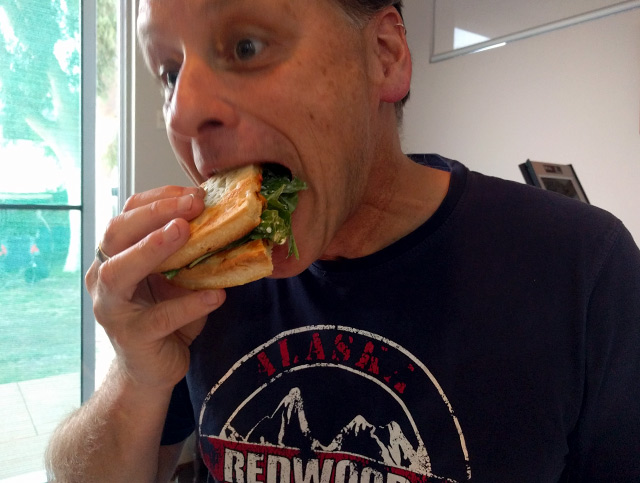Eating well takes planning along with some self-discipline. A well-planned day will mean you don’t get too hungry, and you avoid those sluggish flat times usually felt in the afternoon.
 eating a snack
eating a snack Breakfast is a Must
Try and get up ten minutes earlier to ensure enough time to eat something substantial. If you are in a serious rush, or have an early start there are some good options for an on-the-go breakfast (e.g. a breakfast bar or toast sandwich with light cream cheese). If you exercise in the morning, it will pay to have two smaller snacks around it. Fruit before you start, with something more substantial afterwards like cereal and yogurt for best recovery and to keep you from getting hungry.
Snacking
‘Small frequent snacks’ is a good strategy to keep energy levels high throughout the day. Aim to have a nutritious filling afternoon snack on hand to eat before the afternoon slump and cravings start; such as crackers and cheese, yogurt tub, carrot and celery sticks with hummus, dried fruit or a small handful of nuts. If you work in an office that has a sweet jar or fundraising chocolate in reach, work out a schedule to avoid eating it daily, as these calories will add up and are not the nutritious type.
Plan Your Afternoon
If you train in the afternoon, eat your afternoon snack for pre-training, and have dinner as your recovery meal, otherwise an early dinner might do as the pre-training meal with a healthy dessert as the recovery food.
When training in the afternoon or evening, it is often hard to find enough time to prepare meals. Endeavor to keep a supply of quick and easy ingredients in the freezer and pantry to provide convenience at home. Pizza bases, pasta sauces, fresh noodles, frozen vegetables, lean BBQ meats, and lean mince, can make quick and easy meals. Never underestimate the convenience of leftovers for a quick and easy lunch the next day. So when cooking at home be sure to make an extra serve!
Evening Meal
Eating out for the evening meal can be convenient and time saving and there are some healthier options in the vast array of choices. However, many takeaways are high in saturated fat and low in nutritional value, and for athletes they have a poor carbohydrate to fat ratio. Most restaurants are also geared for high protein, high fat eating. So choose your convenience food wisely.
Related Pages
- Sports Nutrition Athlete Plans
- Athletes Shouldn't Go Hungry — the types of foods consumed can have an impact on daily energy levels
- Nutrition for the Off Season — plan your year-round nutrition goals
- Recipes for Athletes
- Nutrition for Traveling


 Upcoming Events
Upcoming Events